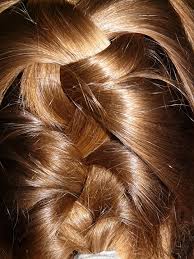What Is Hair Thinning or Hair Loss Caused By?
Men are more likely to having hair loss and hair thinning condition than women. However hair thinning is also common among women. Regardless whether is male or female, hair loss is discouraging and emotional thing for a lot of people.
There are various reasons for hair loss, from simple and temporary such as lack of vitamin, to the more complex reason such as health condition.
In most cases, there are treatments for most hair loss. But before we dive into permanent hair loss replacement treatments such as hair transplant restoration, let’s go through some of the common and not-so-common causes of hair loss.
Insufficient Protein &
Low Low levels of vitamin B are another possible cause of your hair loss.Your body will also ration protein by shutting down hair growth if your body has insufficient protein intake from your daily diet.
Pregnancy
Pregnancy is one example of the type of physical
stress that can cause hair loss (that and hormones). Pregnancy-related hair
loss is seen more commonly after your baby has been delivered rather than
actually during pregnancy. Insufficient Protein &
Low Low levels of vitamin B are another possible cause of your hair loss.Your body will also ration protein by shutting down hair growth if your body has insufficient protein intake from your daily diet.
Anemia
Anemia due to an iron deficiency is another common cause of hair loss. Almost 1 in 10 women aged between 20 to 40 suffers from iron deficiency anemia - the most common type of anemia. To check if you suffer from this type of anemia, you can do a blood test to ascertain.
Dramatic Weight Loss
Sudden weight loss is a form of physical trauma that
can result in thinning hair. This could happen even if the weight loss is
ultimately good for you. It’s possible that the weight loss itself is stressing
your body or that not eating right can result in vitamin or mineral
deficiencies.
Physical
stress
Any kind of physical trauma—surgery, a car accident,
or a severe illness can
trigger hair loss. Hair has a 3-phase life cycle: a growth phase, rest phase and shedding phase. “When you have a
really stressful event, it can shock the hair cycle, (pushing) more hair into
the shedding phase,” explains Marc Glashofer, MD, a dermatologist in New York
City. Hair loss often becomes noticeable three-to-six months after the
trauma.
Emotional Stress
Emotional stress is less likely to cause hair loss
than physical stress, but it can happen, for instance, in the case of caring for an aging parent, or after a divorce, or after the death of a loved one.
Overstyling
Vigorous hair styling and hair treatments over the years
can also cause your hair to fall out. Examples of extreme styling include hair weaves and hair braids, chemical relaxers to straighten your hair, hot-oil treatments or any kind of harsh chemical or high heat. These extreme styling can affect your hair root and result in your fallen off hair not growing back.
Aging And Male Pattern Baldness
It is common to see hair loss or hair thinning in
women as they enter their 50s and 60s. Among men, about 2 out of 3 of them experience hair loss
by age 60, and most of the time it's due to male pattern baldness. This type of
hair loss, caused by a combo of genes and male sex hormones, usually follows a
classic pattern in which the hair recedes at the temples, leaving an M-shaped
hairline.
Heredity
Female-pattern hair loss, called androgenetic alopecia, is basically the female version of male pattern
baldness. Unlike
men, women don't tend to have a receding hairline, instead their part may widen
and they may have noticeable thinning of hair.
Chemotherapy And Other Medications
Some of the drugs used to beat back cancer
unfortunately can also cause your hair to fall out. Chemotherapy destroys rapidly dividing cells. That
means cancer cells, but also rapidly dividing cells like hair. There are also other drugs that might cause hair loss such as certain blood thinners and the
blood-pressure drugs, methotrexate , lithium, nonsteroidal
anti-inflammatory drugs (NSAIDs) including ibuprofen, and possibly antidepressants. 






No comments:
Post a Comment